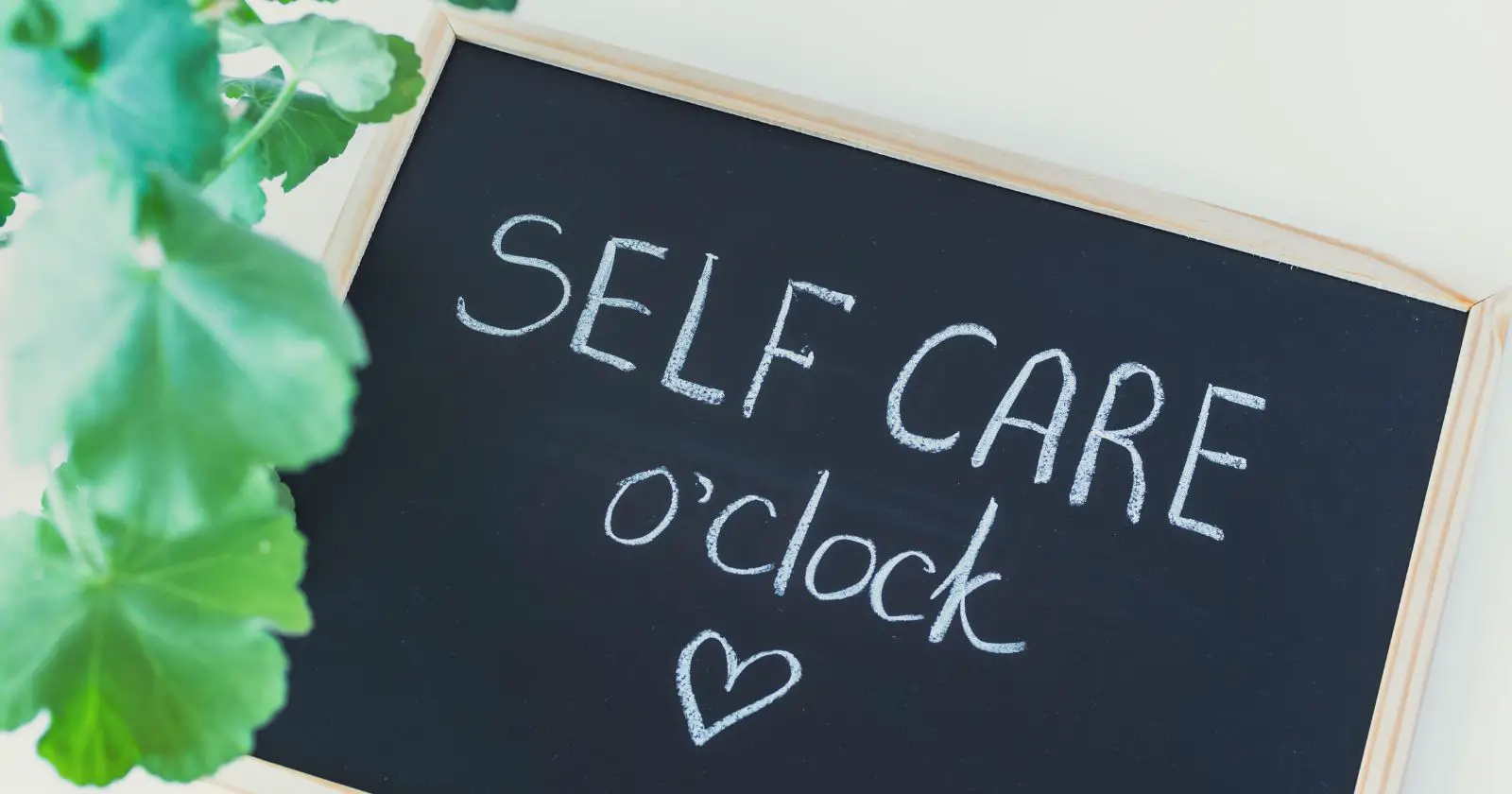Everyone has different ideas of what self-care looks like. For some, it’s getting a massage or going for a run. For others, it’s taking a nice long bath or reading their favorite book. While there is no “right” way to practice self-care, there are some things that we can all do to make sure that we are taking care of our psychological and mental health. Here are 30 self-care tips for optimal psychological and mental health.
30 Self-Care Tips For Optimal Mental And Emotional Health
Get Enough Sleep:
Though often overlooked, sleep is essential for maintaining good mental health. When we sleep, our brains are able to rest and repair themselves from the previous day. This process is important for consolidating memories, reducing stress, and improving mood and focus.
Additionally, sleep deprivation can lead to a host of mental health problems, including anxiety, depression, and irritability. For these reasons, it is important to make sure that you are getting enough restful sleep each night.
There are a few simple steps that you can take to promote better sleep, such as disconnecting from electronics before bed, establishing a regular sleep schedule, and creating a relaxing bedtime routine. By taking these steps, you can ensure that you are getting the restful sleep that your mind needs to stay healthy and happy.
Eat Healthy:
Eating healthy has been linked with better mental health, including less anxiety and depression. Researchers believe that the connection between diet and mental health is due to the fact that food affects the function of the brain. For example, certain nutrients are necessary for the production of neurotransmitters, which help to regulate mood.
For example, omega 3 fatty acids are linked to improving cognitive function and overall mental health. In addition, inflammation has been linked with both physical and mental health problems.
Eating a diet rich in whole grains, fruits, and vegetables can help to reduce inflammation, while processed foods and sugary drinks promote it. As a result, following a healthy diet is not only good for your physical health, but also for your mental wellbeing.
Stay Hydrated:
Staying hydrated is important for overall health, but did you know that it can also impact your mental health? Dehydration can cause fatigue, headache, and trouble concentrating. It can also make you feel irritable and anxious. In extreme cases, dehydration can lead to delirium or hallucinations.
That’s why it’s important to make sure you’re drinking enough water every day. Eight glasses a day is a good rule of thumb, but you may need more if you’re exercising or in a hot climate. And be sure to avoid sugary drinks like soda, which can actually dehydrate you further. So next time you’re feeling down, reach for a glass of water instead of a cup of coffee – your mind will thank you for it.
Exercise Regularly:
Exercise is important for physical health, but it can also have a profound impact on mental health. Regular exercise has been shown to reduce levels of stress and anxiety, improve mood and cognitive function, and help to prevent cognitive decline. For people who are struggling with mental health issues, exercise can be an important part of treatment.
Exercise releases endorphins, which have mood-boosting effects, and it can also help to increase self-esteem and improve sleep quality. In addition, exercise provides an opportunity for social interaction and can help to reduce feelings of isolation. For all these reasons, exercise is an important part of maintaining mental health.
Take Breaks:
It’s important to take breaks throughout the day to recharge your batteries and keep your mental health in check. Even if you’re not feeling particularly stressed, taking a few minutes to yourself can make a world of difference. If you can, step away from your desk or workstation and take a walk outside. Breathe in some fresh air and take in your surroundings.
If you can’t get outside, take a break indoors in a quiet place. Close your eyes and focus on your breathing. Allow your mind to wander or think about something pleasant. You may also want to try some simple stretching exercises to release any tension you’re holding in your body. Taking regular breaks will help you stay focused and productive, and it will also do wonders for your mental health.
Connect With People:
Mental illness can be incredibly isolating, making it difficult to connect with others. However, this study (Social Relationships and Health: A Flashpoint for Health Policy, Debra Umberson, Jennifer Karas Montez) have shown that social interaction can be beneficial for mental health. Whether it’s joining a support group, volunteering, or simply spending time with friends and family, interacting with others can help to reduce feelings of isolation and loneliness. In addition, social interaction can provide a sense of purpose and improve self-esteem.
So if you’re struggling with your mental health, reach out to others and make a connection. This will not only put you in a better mood but will help affect your mental space positively.
Do Something You Enjoy:
Make time for activities that make you happy. This can be anything from playing a sport to painting to cooking. Everyone has their own method of unwinding and relaxing after a long day. For some, it might be watching an episode of their favorite show, while others might prefer going for a walk outdoors.
Regardless of what you enjoy doing, taking some time for yourself is important for maintaining your mental health. When you do something, you enjoy, it can help to reduce stress levels and improve your mood. In addition, taking a break from your everyday routine can give you a chance to reflect on your goals and refocus your energy.
So the next time you’re feeling overwhelmed, take some time for yourself and do something you enjoy. It might just be the thing you need to boost your mental health. When you focus on doing things you love, it’s hard not to feel good mentally.
Drink In Moderation:
Drinking alcohol can have both positive and negative effects on your mental health. According to a growing body of research, moderate alcohol consumption can have a positive impact on mental health. Studies (The psychological benefits of moderate alcohol consumption: a review of the literature, C Baum-Baicker) have shown that moderate drinkers are less likely to suffer from depression and anxiety than those who abstain from alcohol altogether. Additionally, moderate drinking has been linked with lower rates of cognitive decline and dementia. While the exact mechanisms behind these effects are still not fully understood, it is clear that moderate drinking can have some benefits for mental health.
Of course, it is important to remember that moderation is key. Excessive alcohol consumption can lead to a host of problems, including mental and physical health issues. So if you do choose to drink, be sure to do so in moderation. Your mind will thank you for it.
Connect With A Loved One:
If you’re feeling low, anxious, or depressed, talking to someone who cares can be very helpful. Everyone has someone they can rely on for support, whether it’s a family member, significant other, friend, or even a pet. In times of stress, anxiety, or depression, reaching out to this loved one can make all the difference.
They can provide a listening ear, a shoulder to cry on, or simply a distraction from whatever is causing distress. For some people, talking about their problems is enough to start feeling better; for others, taking action steps with their loved one’s help can be more beneficial. Just knowing that someone cares and is willing to help can be incredibly reassuring. So if you’re feeling down, don’t hesitate to reach out to your loved ones – they just might be the best medicine.
Be Mindful:
In our fast-paced, constantly connected world, it’s more important than ever to take a moment to focus on our mental health. Though it’s often viewed as taboo, mental health is just as important as physical health, and we should all take steps to improve our well-being.
One way to do this is to be more mindful of our thoughts and actions. Instead of letting our minds race from one thing to the next, we can try to focus on the present moment and be more aware of our surroundings. This can help to reduce stress and anxiety and lead to a more positive outlook on life. Additionally, taking care of our physical health can also have a positive impact on our mental health.
Eating a balanced diet, getting enough exercise, and getting enough sleep are all important for maintaining a healthy mind and body. By making small changes in our daily routines, we can have a big impact on our mental well-being.
Practice Self-Compassion:
Self-compassion has been shown to be associated with greater well-being and Mental Health. Despite this, many people still find it hard to be kind to themselves when they make mistakes or feel like they’re not good enough. The first step to practicing self-compassion is to be mindful of your self-talk.
Notice the things you say to yourself when you make a mistake or get rejected. Would you say those same things to a friend? If not, try to replace them with more compassionate phrases. For example, instead of telling yourself “I’m such an idiot”, try saying “Everyone makes mistakes”.
Secondly, try to extend compassion to yourself even when you don’t deserve it. Just like you would comfort a friend who is going through a tough time, try to show yourself the same kindness and understanding. Lastly, remember that imperfection is part of being human. We all have flaws and no one is perfect. By practicing self-compassion, we can learn to accept ourselves.
Set Boundaries And Say “No” When You Need To Take Care Of Yourself:
It can be difficult to set boundaries, especially when you’re used to saying “yes” all the time. But learning to say “no” is an important part of taking care of yourself. Setting boundaries allows you to control what comes into your life, and how much of your time and energy you spend on others. This can be especially important for people who tend to put others’ needs before their own. If you’re always saying “yes” to requests, you may not have time for the things that are truly important to you. You may also end up feeling resentful and taken advantage of. Learning to set boundaries requires practice, but it’s worth the effort. When you start setting limits, you may find that you have more time for the things you love and that your relationships are more equitable and satisfying.
Forgive Yourself:
It’s easy to be hard on yourself when you’re struggling with mental health. You might feel like you’re not doing enough, or like you should be able to just “snap out of it.” But the truth is that mental illness is a real and serious condition that deserves compassion and understanding – including from yourself. One of the best things you can do for your mental health is to learn to forgive yourself.
This doesn’t mean making excuses for your behavior or downplaying the seriousness of your condition. Rather, it’s about giving yourself the same grace and compassion that you would extend to others.
It’s about acknowledging that you’re doing the best you can and that your mistakes do not define you as a person. When you can learn to forgive yourself, you’ll find it easier to weather the storms of mental illness and come out stronger on the other side.
Avoid Comparing Yourself To Others:
One of the worst things you can do is compare yourself to others. Constantly comparing yourself to those around you is a surefire way to destroy your self-confidence and happiness. It’s important to remember that everyone is on their own unique journey and comparing your own progress to someone else’s is rarely productive or accurate. So next time you find yourself getting caught up in comparison, take a step back and focus on your own journey.
Spend Time In Nature To Appreciate The Beauty Of The World Around You:
One of the best ways to appreciate the beauty of the world around you is to spend time in nature. Immersing yourself in the sights and sounds of the natural world can help to reduce stress and promote a sense of well-being.
A study (Associations between Nature Exposure and Health: A Review of the Evidence, Marcia P. Jimenez, Nicole V. DeVille, Elise G. Elliott, Jessica E. Schiff, Grete E. Wilt, Jaime E. Hart, and Peter James) shows that spending time in nature can lower levels of cortisol, the stress hormone, and increase levels of serotonin, the feel-good chemical.
Being in nature can also help to reduce rumination, a type of repetitive thinking that can worsen symptoms of anxiety and depression. In addition, exposure to sunlight can help to improve your mood and boost your energy levels. So next time you’re feeling overwhelmed or down, head outdoors and take in the beauty of nature.
Set Goals And Priorities:
When it comes to mental health, it is important to set goals and priorities. This will help you focus on what is important and enable you to better manage your time and resources. It is also important to be realistic in setting goals and priorities. If you set unrealistic goals, you are likely to become frustrated and discouraged.
Therefore, it is essential to take into account your current situation and capabilities when setting goals for mental health. Once you have identified your goals, you can begin to develop a plan for how to achieve them.
This plan should be actionable and specific, and it should include a timeline for completion. By taking the time to develop a plan, you are more likely to achieve your mental health goals.
Write Affirmations:
You can improve your mental health by writing affirmations. Start by identifying some of the negative thought patterns that you want to change. Then, craft some positive statements that counter those negative thoughts.
For example, if you’re trying to overcome anxiety, you might write affirmations like, “I am calm and in control,” or “I am safe.” Recite your affirmations aloud, multiple times each day. Doing so will help to reprogram your brain and set you on the path to a more positive mindset.
Who doesn’t love to hear nice things about themselves anyways? Take that first step to a positive mindset by telling yourself how much you love yourself today!
Practice Gratitude:
According to Harvard Medical School, practicing gratitude has numerous benefits, including reducing anxiety and depression and sharpening your brain function. It also gives us peace of mind by reminding us of what we are fortunate enough to have.
Take some time to write down a few things you’re grateful for in a journal. You can even write them down on some sticky notes to put them on your bathroom mirror. If that sounds daunting, simply begin your day by thinking about someone or something you truly appreciate. This is one of the easiest ways to start your day on the right foot.
Focus On Positivity:
Piggybacking off the last tip for mental health, look to specifically focus on positivity. Positivity can take many forms, from happy thoughts and memories to thinking calmly and constructively about problems. By focusing on the positive, we train our brains to think more optimistically and constructively, which has benefits for both our mental and physical health. Get your brain used to the positives on life rather than the negatives and you can see your mood change quickly.
Get A House Plant:
Many people don’t realize that having a plant in their home can greatly improve their mental health. This study (Interaction with indoor plants may reduce psychological and physiological stress by suppressing autonomic nervous system activity in young adults: a randomized crossover study, Min-sun Lee, Juyoung Lee, Bum-Jin Park, and Yoshifumi Miyazaki) shows that plants can help to reduce stress levels, improve concentration, and even boost moods. In addition, plants help to purify the air and can increase levels of oxygen in the home.
As a result, houseplants can be an easy and effective way to improve mental health. There are a wide variety of plants to choose from, so it’s easy to find one that suits your needs. If you’re looking for a low-maintenance plant, consider getting a succulent or cactus.
For something that will help purify the air, try an ivy or spider plant. Or, if you’re looking for a plant that will boost your mood, consider getting a jasmine or lavender plant.
Switch Your Daily Coffee For A Cup Of Tea:
In the morning, millions of people around the world reach for a cup of coffee to help them start their day. However, coffee isn’t the only beverage that can give you a boost of energy. Tea is another excellent option that comes with a host of additional benefits.
For one, tea is rich in antioxidants, which can help to improve your overall health. Additionally, tea has been shown to promote weight loss and protect against heart disease. So if you’re looking for a healthier alternative to coffee, consider making the switch to tea.
Get A Massage:
Massage therapy is an effective treatment for anxiety and depression. Researchers found that massage therapy reduced levels of the stress hormone cortisol in both men and women. In addition, participants who received massage therapy reported feeling less anxious and more positive than those who did not receive massage therapy.
Studies find massage therapy has also been shown to improve sleep quality and increase feelings of well-being. If you are struggling with anxiety or depression, consider making an appointment with a licensed massage therapist.
Massage therapy can provide you with much-needed relief from your symptoms and help you to feel better overall.
Read A Book:
A lot of people nowadays are so focused on their work that they forget to take care of themselves. And while it’s true that a good work ethic is important, it’s also important to remember that your mental health is just as vital as your physical health. One way to help keep your mind healthy is to read a book.
Books can provide an escape from the everyday stresses of life, and they can also teach you new things and help you to see the world in different ways. In addition, reading has been shown to improve brain function and memory. So next time you’re feeling overwhelmed, take some time out for yourself and pick up a book.
Practice Meditation:
Meditation has been practiced for centuries, and it has a number of proven benefits for both the mind and body. In recent years, meditation has been gaining popularity as a way to improve mental health. According to mayoclinic.org meditation can help to reduce anxiety and depression, improve focus and concentration, and even enhance memory. What’s more, meditation is easy to learn and can be practiced anywhere.
There are many different types of meditation, so it’s important to find one that suits your needs. If you’re looking to improve your mental health, consider taking 5 minutes today to meditate.
Spend Some Time With Your Pet:
There are many benefits to spending time with your pet. It can help reduce stress, anxiety, and depression. It can also provide social support and increase opportunities for physical activity.
Dogs, in particular, can also help build confidence and self-esteem. However, it’s important to remember that not all pets are right for everyone. If you’re considering getting a pet, it’s important to do your research to find an animal that will be a compatible fit for your lifestyle.
Look to your friends and family with pets to see which best fits your personality. Once you’ve found the perfect pet, spending some time bonding with them each day can provide numerous mental health benefits.
Let Your Creative Side Out:
We all have a creative side, even if we don’t realize it. And according to experts, expressing creativity can be good for our mental health. “The creative arts are a way of externalizing feelings and thoughts that might be difficult to put into words,” says psychologist Katherine Mineka. “They can be a form of communication.” That’s why many therapists use art, music, and other forms of creative expression in their work with patients.
There’s also growing evidence that engaging in creative activities can have a positive impact on our mental well-being. One study (Art Therapy: A Complementary Treatment for Mental Disorders, Jingxuan Hu, Jinhuan Zhang, Liyu Hu, Haibo Yu, and Jinping Xu) found that people who took part in a 12-week art therapy program had reduced levels of anxiety and depression. Another found that seniors who participated in a weekly art class had improved cognitive function and less social isolation.
So what’s the best way to let your creative side out? There’s no wrong answer – anything that gets you expressing yourself is worth doing. Whether you enjoy painting, writing, photography, or any other form of creativity, find some time in your schedule to pursue it.
Unplug An Hour Before Bed:
Most people are familiar with the importance of getting a good night’s sleep for physical health, but few realize that sleep is also critical for mental well-being. One way to ensure a good night’s sleep is to unplug from electronics an hour before bed.
The blue light emitted by screens can interfere with the body’s natural sleep cycle, making it harder to fall asleep. In addition, the stimulating content of many electronic devices can make it more difficult to relax and unwind before bed.
By disconnecting from electronics an hour before bedtime, you can give your mind and body the chance to wind down and prepare for a restful night’s sleep. As a result, you’ll wake up feeling refreshed and ready to take on the day.
Stop Hitting The Snooze Button:
It’s the sound we all dread in the morning, that blaring alarm clock that means it’s time to start the day. For many of us, the first instinct is to hit the snooze button and drift back into a blissful sleep for a few more minutes.
However, recent research suggests that hitting the snooze button may do more harm than good when it comes to our mental health. When we wake up abruptly and then go back to sleep, our brains enter a state known as “micro-sleep.” This can lead to confusion and disorientation, which can make it difficult to focus and be productive throughout the day.
In addition, research has shown that people who hit the snooze button are more likely to experience anxiety and depression. So next time your alarm goes off, resist the urge to hit snooze and give yourself a chance to start the day on a positive note.
Declutter Your Life:
One important step you can take to improve your mental health is to declutter your life. That means decluttering your physical space, as well as your schedule and your relationships. When your environment is cluttered, it can be difficult to focus and relax.
The same is true of your schedule. If you try to pack too much into each day, you’ll end up feeling stressed and overwhelmed. And finally, it’s important to declutter your relationships.
Surround yourself with positive people who make you feel good about yourself. Let go of any Toxic relationships that are dragging you down. By decluttering your life, you can create the peace and space necessary for a healthy mind.
See A Therapist:
Many people experience mental health problems at some point in their lives, but for some, these problems can be long-lasting and have a profound impact on their daily lives. If you are struggling to cope with your mental health, it may be time to seek professional help.
A therapist can provide you with support and guidance as you work through your challenges. In addition, therapy can help you to develop healthy coping mechanisms and reduce the symptoms of your mental health problem. If you are feeling overwhelmed, don’t hesitate to reach out for help. See a therapist today and start on the path to recovery.
Final Thoughts
Taking care of your psychological and mental health is important for living a happy and fulfilled life. There are many different ways to practice self-care, but the most important thing is that you find what works for you.
Experiment with different activities until you find a routine that makes you feel good mentally and emotionally. Remember, if you ever feel like you need professional help, don’t hesitate to reach out. Help is always available.







